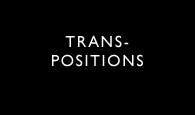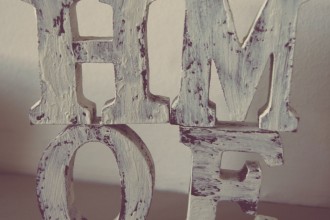I’m tired. Actually, I’m exhausted: physically, emotionally, mentally. I’m even a little tired spiritually. It has been a rough few months. I’m still grieving the loss of my grandmother. I’m definitely in the hard yards phase of the second year of my doctoral thesis writing experience. My body is responding badly to the inherent stresses of life. And it was a long, cold, and dark winter in Scotland. Easter has been a distant light casting off a hopeful glow at least since the beginning of Lent. The joy of the Springtime flowers, the glimpses of warming sunlight, and the words of Madeline L’Engle, Katherine Norris, Wendell Berry, and the Psalms have been a balm to a battle-torn soul.
I’ve been looking forward to the triumphant joy of Easter Sunday – the sharing of a wonderful meal in the company of friends and fellowship as we hail the coming of the King. As I contemplated the form of this Easter reflection, I realised that my heart and soul wanted to avoid contemplating the depths of Christ’s suffering. It just seems too hard and too much right now. I’m not ready. I feel overwhelmed by life. The Passion seemed, (I admit, still seems) too brutal and difficult for me to meditate upon. It seemed somehow easier, though only heaven knows why, to think upon the marvellous mystery and miracle of the Resurrection – to declare the reign of a King whom I worship as Lord and Saviour – than to set my eyes upon the events that lead up to Easter Sunday. Though finding a positive uplifting message is often what we’re encouraged to do in times of struggle and weariness, is that what Easter is really about?
I’d like to suggest that it’s not, at least not totally. I want to reflect briefly on two verses from John Updike’s “Seven Stanzas at Easter“ which have provided a sobering foil to my self-absorption.
Let us not mock God with metaphor,
analogy, sidestepping transcendence;
making of the event a parable, a thing painted in the faded credulity
of earlier ages:
let us walk through the door.
Let us not make it less monstrous,
for in our own convenience, our own sense of beauty,
lest, awakened in one unthinkable hour,
we are embarrassed by the miracle,
and crushed by remonstrance.
It may be easy on one’s battle weary heart, and it may satisfy us to think only of the happy, sweet, pretty picture. But I wonder whether in limiting ourselves to the PG version how much we miss the wonder and power and mystery of the Passion. I wonder whether we are like those Jews who thought the Messiah would come as the conquering King, all powerful to usher in a new Kingdom. Of course, he did that, but not in the expected way. Does it spontaneously solve all that ails me in realising this? No, but my perspective has been realigned, whether I like it or not. The King is coming, the least I can do is have an open heart.
Make no mistake: if He rose at all
it was as His body.
If the cells’ dissolution did not reverse, the molecules reknit, the
amino acids rekindle,
the Church will fall.
It was not as the flowers,
each soft spring recurrent;
it was not as His Spirit in the mouths and fuddled eyes of the
eleven apostles;
it was as his flesh: ours.
The same hinged thumbs and toes,
the same valved heart
that – pierced – died, withered, paused, and then regathered out of
enduring Might
new strength to enclose.
Let us not mock God with metaphor,
analogy, sidestepping transcendence;
making of the event a parable, a thing painted in the faded credulity
of earlier ages:
let us walk through the door.
The stone is rolled back, not papier mache,
not stone in a story,
but the vast rock of materiality that in the slow grinding of time will
eclipse for each of us
the wide light of day.
And if we will have an angel at the tomb,
make it a real angel,
weighty with Max Planck’s quanta, vivid with hair, opaque in the
dawn light, robed in real linen
spun on a definite loom.
Let us not make it less monstrous,
for in our own convenience, our own sense of beauty,
lest, awakened in one unthinkable hour,
we are embarrassed by the miracle,
and crushed by remonstrance.
What do you think of Updike’s “Seven Stanzas at Easter”? Have you been struck by any art, or poems, or passages in the lead up to Easter?
Source: ‘Seven Stanzas at Easter, in Telephone Poles and Other Poems (London: Andre Deutsch, 1964), 72–3.






Thanks, Anna.
I’ve loved that Updyke poem for years. I also like Steve Turner’s poem (not sure of the title) Christmas is really for the children. Do you know it?
the Updike is one of my favorites. But do not beat yourself up if you cannot bear to add layers of His suffering to your own, right now. Your suffering is already His.
To paraphrase Chesterton, “God allows us the ability to remember that we forget”…Thank you for this!
It’s so very good to read you again, Anna. You are certainly kept near in thought.